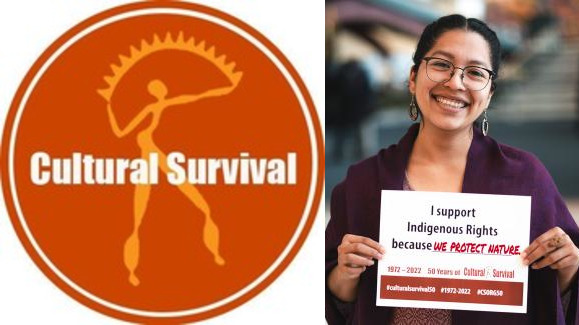
(Photos courtesy of Cultural Survival/Jamie Malcom-Brown)

(Photos courtesy of Cultural Survival/Jamie Malcom-Brown)
Not many people have the courage to dedicate their lives to making a difference. Bia’ni Madsa’ Juárez López from ‘Cultural Survival’ cannot say the same.
Cultural Survival is a non-profit organization that advocates for the rights of Indigenous Peoples around the world. As the program manager for ‘Cultural Survival’s Keepers of the Earth Fund (KOEF)’, Bia’ni awards grants to grassroots Indigenous-led organizations from different countries to support them as they achieve their autonomy and sovereignty.
According to the KOEF website, “Since 2017, the Fund has provided grants and technical assistance to over 177 Indigenous-led projects in 35 countries around the world, totaling $764,317 USD.”
This past semester, I had the amazing opportunity to work closely with this organization as an advocacy intern, where I researched and wrote articles on various topics while providing general support on projects relating to Indigenous rights.
At the end of my internship, I was able to meet with Bia’ni to discuss the impactful work that ‘Cultural Survival’ and the ‘KOEF’ are doing for the future of Indigenous rights and sustainability.
When asked if there was a particular project that stood out to her, Bia’ni was able to share about a women’s project in Chiapas, Mexico that is producing organic food through sustainable Indigenous practices.
Bia’ni said, “I think it is really nice because the project itself is about food but it also helps to empower young women in their community.” Many KOEF-funded projects highlight gender equality in addition to supporting the revitalization of Indigenous practices, because the two topics are often intertwined.
When I asked her to share her favorite thing about working on the ‘KOEF’, Bia’ni stated “I love having the opportunity to know a very diverse group of people. Being Indigenous myself, I really love the opportunity to know other people on other sides of the world, to know their culture, to know what they are doing, and also to know what they are facing or struggling with.”
Indigenous peoples live in harmony with their environment. But according to Bia’ni, “It is because we have been living in our territories and taking the time to get to know our land and environment.”
Bia’ni shared that this harmony is also achieved by making mistakes. She explained, “We have faced moments in our lives where we, for example, polluted the river, but we learned from those experiences and we changed what we were doing so, with time, we learned how to live more in peace with nature.”
Bia’ni cautions people not to make generalizations about Indigenous peoples. She states, “We do have a lot of knowledge and it’s nice to hear that that is something that is now recognized, but what I would like for people to know is that not everyone or every culture knows everything.”
According to Bia’ni, we often incorrectly say that ‘Indigenous peoples have solutions for climate change’; this is a huge generalization.
Bia’ni says that “talking from my own experience, my territory is very specific and even though I am Indigenous, I have no idea how Indigenous peoples that live on the ice manage their environment.”
Bia’ni advises that, when talking about environmental solutions, “to remember that we need to go to the specific cultures and not just give a general idea of ‘oh all the Indigenous peoples have knowledge’ because there are all kinds of problems.”
It is important to remember that Indigenous peoples “are a diverse group of people and are willing to help but also there are a lot of things that we need to learn, specifically about climate change.”
Bia’ni stated that “Climate change has made Indigenous people re-learn things we have been doing for a very long time.” For example, today with frequent severe weather events, food cultivation has become a large problem for many communities. Bia’ni shared that “some of our partners are currently working to develop new alternatives and knowledge to produce food in a more efficient way.”
At the end of our interview, Bia’ni left me with one piece of wisdom. In helping Indigenous peoples fight for their land and for the environment, the most important thing is to learn. She said it is important, “to really be able and willing to learn from the most experienced people. That is our task.”
I cannot say enough good things about ‘Cultural Survival’. The work that they are doing is directly benefiting thousands of Indigenous peoples daily through the development of sustainable projects. I am so grateful to have had the opportunity to work closely with this organization and the amazing, selfless people that run it.
Projects like the ‘Keepers of the Earth Fund’ are at the forefront of the fight against climate change, so we should continue to look to Indigenous organizations like ‘Cultural Survival’ for guidance in this endeavor.